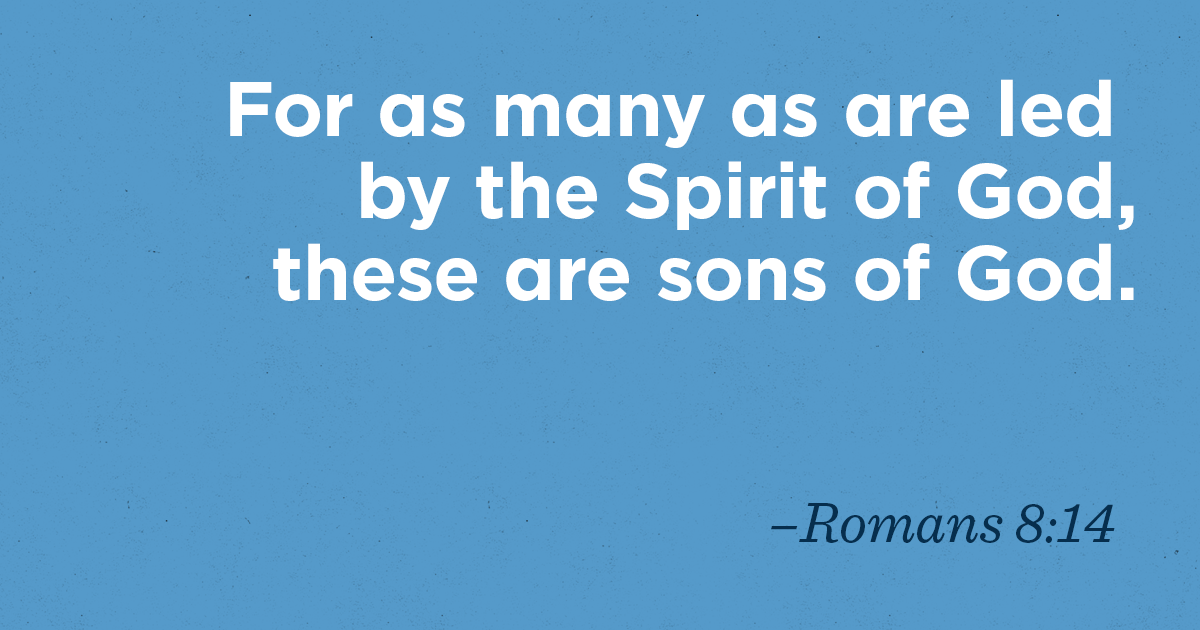Sinners, Enemies, and Sons of God in Romans

Originally posted on the Bibles for America Blog.
In several previous posts, we discussed how God’s wonderful salvation for us includes both our redemption and salvation from eternal perdition. In the book of Romans, the apostle Paul unveils the salvation of God in full. With the help of some notes in the New Testament Recovery Version, let’s gain an even broader, deeper view of God’s salvation.
Romans and God’s salvation
In Romans 1:1-4 Paul tells the believers in Rome that he has been “separated unto the gospel of God.” The note on Son of God in verse 4 in the New Testament Recovery Version gives a brief summary of God’s full salvation shown in Romans, which begins:
“This book tells us that God’s full salvation is to make sinners (3:23), even His enemies (5:10), the sons of God (8:14).”
The rest of the note is rich with important truth and well worth reading, but in this post we’ll get into three big points from this first sentence: sinners, enemies, and sons of God.
Sinners—Romans 3:23
“For all have sinned and fall short of the glory of God.”
All have sinned. In unsparing detail, Paul makes it clear in the first three chapters of Romans that we all are sinners. He leaves us no escape from the light exposing fallen humanity’s real condition. Our words, behavior, deeds, and thoughts are infected with the poison of sin. No matter who we are or what our culture or background is, no one can stand sinless before God. Whether we’re moral or immoral, ignorant of God or religious keepers of law, the Bible clearly states that there is none righteous before God, not even one.
Even our good deeds are included in this verse, since having sinned is paired with falling short of the glory of God. A note on glory in this verse helps us see what this means:
“God’s glory is God expressed. Whenever God is expressed, His glory is seen. Man was made by God in His image that man might express Him for His glory. But man has sinned and has contradicted the holiness and righteousness of God. Instead of expressing God, man expresses sin and his sinful self. Hence, man falls short of God’s glory. This falling short of God’s glory and expression is sin. Sinners are not only under the requirements of God’s holiness and righteousness but also under the demand of God’s glory. All have offended God’s holy being and have broken God’s righteous law, and all are short of God’s glory. Therefore, all are under God’s condemnation.”
God created man in His own image so we could have His life and express Him. But man fell, and fallen mankind can’t express God. Yes, we have sinned by our evil actions that violate God’s holiness and righteousness. But we have also sinned by our good actions done without God as their source. Thus they cannot express God. Falling short of His glory, His expression, we’re unable to fulfill the purpose God created us for. In every way we’re ungodly and under God’s condemnation.
Enemies—Romans 5:10
“For if we, being enemies, were reconciled to God through the death of His Son, much more we will be saved in His life, having been reconciled.”
As fallen sinners, we’re not only under God’s condemnation; we’re even enemies of God. An enemy isn’t just someone you have a little disagreement with. An enemy is someone who’s actively hostile to you, opposed to you, and whose whole attitude is against you. That’s how we are as enemies of God—in utter discord with God, with no inner peace. This is a big problem for us and for God, but the note on reconciled in this verse explains what Christ did to solve it:
“Propitiation and forgiveness of sins are adequate for a sinner but not for an enemy. An enemy needs reconciliation, which includes propitiation and forgiveness but goes further, even to resolving the conflict between two parties. Our being reconciled to God is based on Christ’s redemption and was accomplished through God’s justification (3:24; 2 Cor. 5:18-19). Reconciliation is the result of being justified out of faith.”
What a state we were in before we believed in Christ! But thank God, Jesus Christ paid the ultimate price for us, dying as the spotless Lamb of God to satisfy God’s righteous demands. Because of what Christ did—not because of anything we’ve done—the righteous, holy, and glorious God can forgive us and spare us from eternal judgment, and we can be reconciled to God!
Such a truly magnificent salvation isn’t aimless. Our God is a purposeful God, and His salvation is part of His eternal purpose—to be one with man and expressed in man, as He originally intended. For this, God is making sinners, even His enemies, His sons.
Sons of God—Romans 8:14
“For as many as are led by the Spirit of God, these are sons of God.”
Incredibly, God doesn’t stop with us simply not being His enemies anymore. He wants to make us, those who were His enemies, His sons.
The New Testament refers to believers in an interesting progression: as God’s children, His sons, and His heirs. The verse above speaks specifically of sons of God, not children. What’s the difference? And why does God want us to be sons? Let’s look at the note on sons of God.
“The central thought of the book of Romans is that God’s salvation makes sinners His sons, who have His life and nature so that they can express Him, that they may become members of Christ to constitute the Body of Christ for His expression. Hence, sonship is stressed in this chapter (vv. 15, 23). Sons here indicates a more advanced stage of growth in the divine life than does children in v. 16, yet not as advanced as heirs in v. 17. Children refers to the initial stage of sonship, the stage of regeneration in the human spirit. Sons are the children of God who are in the stage of the transformation of their souls. They not only have been regenerated in their spirit and are growing in the divine life, but they also are living and walking by being led by the Spirit. Heirs are the sons of God who, through the transfiguration of their body in the stage of glorification, will be fully matured in every part of their being. Hence, they will be qualified as the legal heirs to claim the divine inheritance (vv. 17, 23).”
John 1:12-13 tells us that we who have believed in the Lord Jesus have become children of God. This happened when we were reborn with the divine life of God in our spirit, the deepest part of our being. We can boldly say that we’re children of God.
That was our beginning, our divine birth as God’s children. But children need to grow. A little baby certainly has the life of his parents and is a joy to them, but he doesn’t yet express them much. As he eats and drinks and breathes, he grows, and a trait of his father, or his mother’s smile, begins to appear. He grows from a little child into a son, expressing more of the life he received from his parents.
We received God’s life in our spirit, but our soul—our mind, emotion, and will—is how we express ourselves. In His full salvation, God wants to spread as life into each part of our soul so our thoughts, feelings, and choices are one with Him and express Him.
How does this happen? Just as a child needs to eat, drink, and breathe in order to grow and change physically, we need to eat God’s Word, drink the Spirit, and breathe the Lord in prayer in order to grow and change spiritually. This is our growth and transformation in the divine life, through which we go from being children of God to being sons of God. The more we grow and are transformed, the more we can express God as His sons.
If we continue to grow, we will become heirs of God. An heir is a fully mature son. When the Lord returns, we’ll experience transfiguration—God’s life spreading beyond our soul into our body—and will be matured heirs of God, saturated with the divine life in every part of our being, wholly expressing God.
Becoming sons of God today
God’s full salvation isn’t just for the future; it’s for us today. Seeing that God wants to make us His sons, expressing Him in every part of our being, makes us aware of our need to grow in His life now, today, and every day.
Where are we in our growth? If we’ve believed in Christ as our Savior, then we’re certainly children of God, reborn in our spirit. But are we daily becoming sons of God in our soul? How much of the divine life has spread into our thoughts, our feelings, our decisions? How much has our soul been transformed into the image of Christ?
We have to admit, none of us expresses God fully quite yet. But eventually, as we choose to spend time with the Lord in our daily lives, He will transform us—who were once sinners and God’s enemies—into the many sons of God who will express Him together as the one Body of Christ for eternity.
Praise God, He’s making sinners, even His enemies, the sons of God!
Subscribe to receive the latest posts






